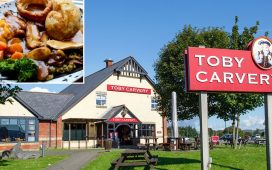Work on Britain’s planned HS2 high-speed railway is at such early stages that it is almost impossible to predict the final costs, the public spending watchdog has warned.
The damning assessment by the National Audit Office, which also said the scheme could face further delays, will add to questions as to whether the government should proceed with Europe’s largest infrastructure project.
The report found that the final costs were “not yet clear” and there was “significant uncertainty” that trains would be running between London and the north of England by the planned opening date of 2040. None of the initial designs for the 330-mile railway have been completed, the NAO found.
The auditor’s verdict comes just days after the Financial Times revealed that the latest government review of the scheme, commissioned by prime minister Boris Johnson, estimated the costs could rise to as much as £106bn in 2019 prices, almost double the £56bn estimate five years ago.
Mr Johnson is expected to decide on the future of the project within weeks. But the NAO’s assessment will pile further pressure on HS2 Ltd, the government agency charged with delivering the 250mph railway line. It has spent £8bn since starting work on the scheme a decade ago but has yet to start construction work.
The prime minister had asked the review to assess whether the scheme should go ahead and to identify cost-savings. But the NAO report found that although HS2 Ltd had plans identifying where savings could be made it “did not develop these further into a programme of activity to achieve them”.
Under existing plans, HS2 would be built in two stages, with a link between London’s Euston station and Birmingham in the first phase and then on to Leeds and Manchester by 2040, seven years later than the original target.
“Given the reasons for cost increases on phase one, we do not think it is possible, as yet, to estimate with certainty what the cost could be,” the NAO said.
Just 70 to 80 per cent of the initial designs have been completed on phase one of the line between London and Birmingham. This section was due to open in 2026 but services are now forecast to start between 2031 and 2036 at a cost of £31bn to £40bn in 2015 prices, the NAO said.
At the London terminus at Euston where demolition work has started, the station will need to be extended to accommodate 18 high-speed trains per hour. But there is no clear plan for “how this will be done and the likely cost”, the watchdog found.
Work on the second phase of the project was only between 5 and 10 per cent complete, the watchdog found. The limited amount of work done on the section that is due to run in to the centres of Manchester and Leeds was of particularly concern. Although this part of the scheme was bigger and more complex than the rest of the line, it has received less funding than the remainder, throwing the entire budget in doubt, the NAO said.
Cost estimates on that section exclude junctions with other proposed services such as the proposed Northern Powerhouse rail project, the report warns.
Gareth Davies, the head of the NAO, called for greater “transparency” on the project and warned that HS2 Ltd needed to develop its management capabilities. He said the government and the agency “had not adequately managed risks to taxpayer money.”
Ministers knew as early as 2016 — prior to phase one of the project getting parliamentary consent in February 2017 — that the time and cost schedule were under pressure, the NAO said. But the government only published an updated cost estimate last year.
Based on the 2019 estimate, the NAO put the cost of the project at between £65bn and £88bn in 2015 prices. According to an FT analysis this would put the official cost estimate of the scheme between £73bn to £99bn in 2019 prices.
An HS2 spokesman said that the “vast majority” of the NAO’s findings had been revealed last year and that “ministers have robust cost estimates for phase one of the HS2 project”.













